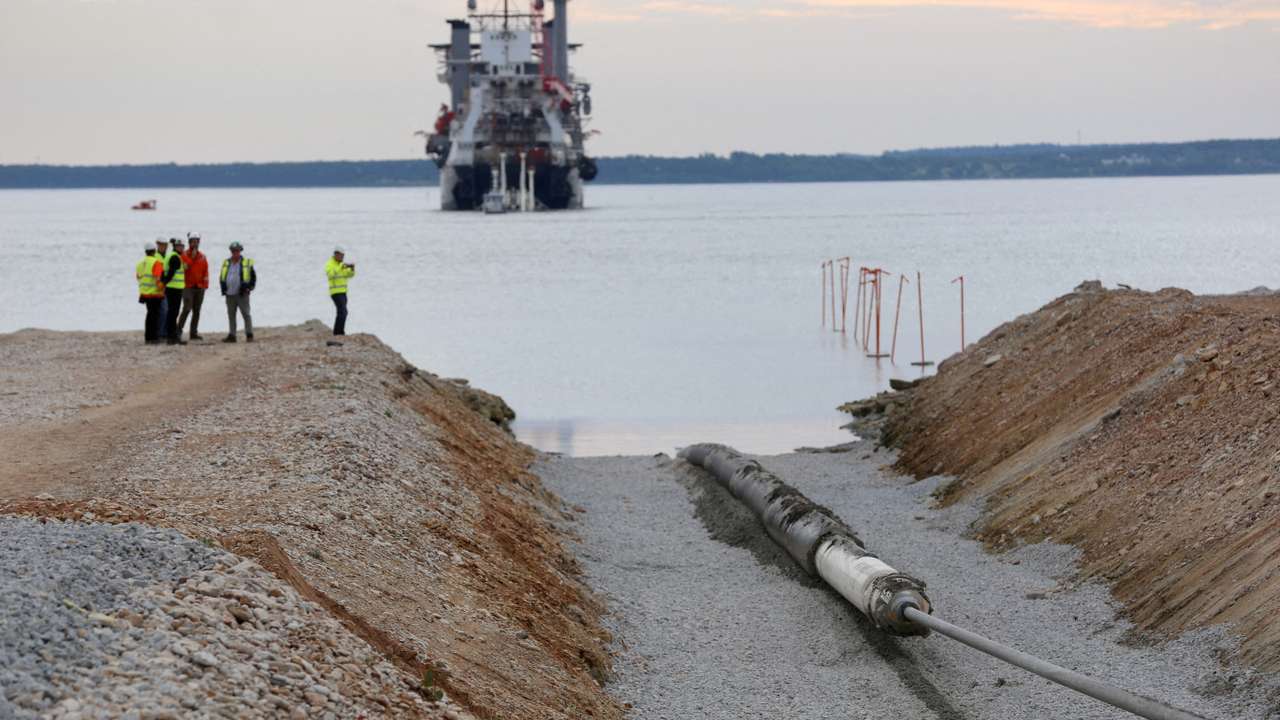Azerbaijan to start gas exports to its seventh European customer, replaces Russia

A day after Azerbaijan was designated as the host of next year's UN climate change conference, Baku started exporting gas to Serbia, its seventh European customer.
Ilham Aliyev, the President of Azerbaijan participated in the opening ceremony of the Serbian section of the Greece-Bulgaria-Serbia pipeline on Sunday, December 10, along with his Bulgarian and Serbian counterparts. The gas export of the Republic of Azerbaijan to this country began on the same day.
Meanwhile, the discussions surrounding the future use of fossil fuels as one of the main causes of global warming was a key topic amongst world leaders in this year's climate change conference known as "COP28" in Dubai.
The Republic of Azerbaijan started exporting gas to Europe in 2020 and currently supplies gas to European countries including Greece, Italy, Romania, Bulgaria, and Serbia in addition to Georgia and Turkey.
Mr. Aliyev announced that his country will export 24 billion cubic meters of gas this year, half of which will be delivered to five European customers, and this number will double in the next few years.
Azerbaijan gas replaced Russian gas in these countries as sanctions imposed on Russia in the aftermath of the Ukraine war alienated European customers.
According to the agreement signed between the European Commission and the government of Baku last summer, Azerbaijan will increase gas exports to European countries to 20-25 billion cubic meters by 2027.
Azerbaijan is in the process of negotiating and signing gas export agreements with five other European countries.
Considering the drop in its oil production, Azerbaijan has started a wide campaign to diversify the country's economy, including the development of transit corridors for foreign goods, electricity, and gas exports, as well as the development of agriculture and the tourism sector.
Radio Farda reported from Elham Shaban, director of the Caspian Oil Studies Center in Baku, that last year, for the first time, Azerbaijan's gas export revenues exceeded oil exports.
According to him, the Republic of Azerbaijan and the United States of America started industrial oil production for the first time in the world about 170 years ago, and Baku produced half of the world's oil in 1900.
"This country's oil reserves are running out and Over the past 10 years, the country's crude oil production has halved. The Republic of Azerbaijan is trying to move from the era of oil to gas, solar, and wind energy," he said.
The Republic of Azerbaijan has also significantly increased its electricity exports and signed contracts with international giants such as France's Total, Britain's BP, and even the UAE's "Masdar" to set up solar and wind power plants with a capacity of 10,000 megawatts, to export clean electricity to Europe.
The Republic of Azerbaijan has committed to providing 60% of the country's electricity from clean, non-fossil sources by 2030 and reducing greenhouse gas production to zero by 2050.
In the draft resolution of the United Nations Climate Change Conference, COP28, the Republic of Azerbaijan is introduced as the host of next year's climate change conference. Previously, Bulgaria was nominated to host the 29th COP but was opposed by Russia.